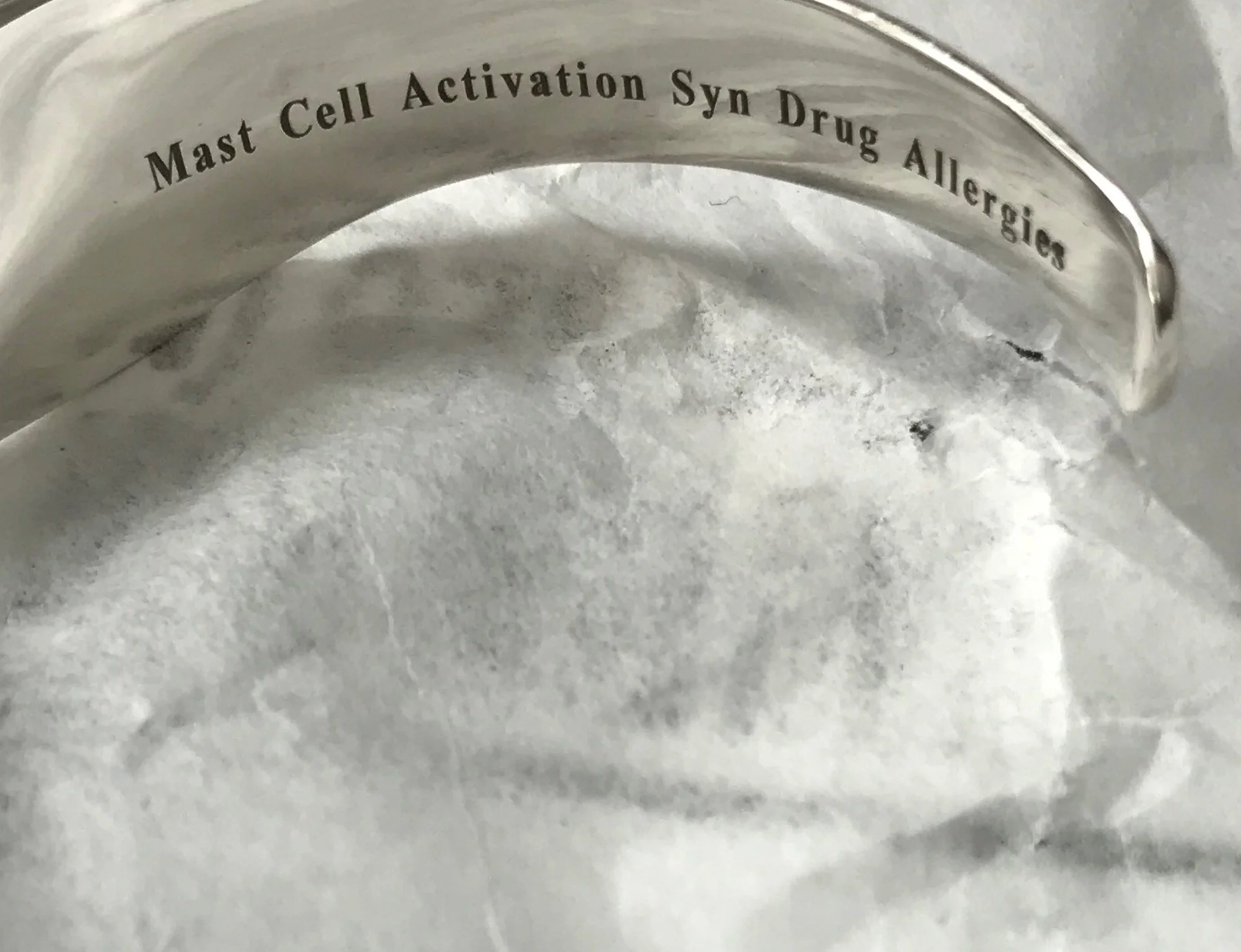Mast Cell Bracelets
Mast cells are a type of white blood cell that plays a vital role in the immune system. They are found in connective tissues throughout the body, including the skin, digestive system, and respiratory system. Mast cells are involved in the body's response to injury and infection, but they can also be responsible for allergic reactions and other health conditions.
Why it is crucial to wear a medical ID if you have Mast Cell:
Wearing a medical ID bracelet or necklace is essential for people with mast cell activation syndrome. Here's why:
In case of emergency: In an emergency situation, medical professionals may not be aware of the patient's condition, and an ID can provide critical information about their medical history.
Avoiding misdiagnosis: Mast cell activation syndrome is a relatively new condition, and many medical professionals may not be familiar with it. Wearing a medical ID can help prevent misdiagnosis and ensure that the patient receives appropriate treatment.
Communicating with medical professionals: A medical ID can provide essential information about the patient's condition, medication, and treatment plan, which can be useful in communicating with medical professionals.
Peace of mind: Wearing a medical ID can give people with mast cell activation syndrome peace of mind, knowing that they have taken steps to ensure their safety in case of an emergency.
Symptoms of Mast Cell:
The symptoms of mast cell activation syndrome (MCAS) can vary from person to person, and some people may experience more severe symptoms than others. Common symptoms include:
Flushing
Hives
Itching
Abdominal cramps
Diarrhea
Headaches
Brain fog
Fatigue
Rapid heartbeat
Shortness of breath
Treatment of Mast Cell:
The treatment of mast cell activation syndrome depends on the severity of the symptoms and the underlying cause. Treatment options include:
Medications: Antihistamines, leukotriene inhibitors, and mast cell stabilizers are commonly used to treat MCAS symptoms.
Lifestyle changes: Avoiding triggers such as certain foods or environmental factors can help manage symptoms.
Immunotherapy: Immunotherapy can help desensitize the immune system to specific allergens and reduce the severity of symptoms.
Corticosteroids: In some cases, corticosteroids may be prescribed to reduce inflammation and manage severe symptoms.
Mast cell activation syndrome is a condition that affects many people, and while there is no cure, there are treatments available that can help manage symptoms. It is essential for people with mast cell activation syndrome to wear a medical ID bracelet or necklace to ensure that medical professionals are aware of their condition in case of an emergency. By taking these steps, people with mast cell activation syndrome can live healthy and fulfilling lives.
Mast Cell Online Resources
The Mastocytosis Society: This organization is dedicated to supporting individuals with mast cell disorders, including mastocytosis and mast cell activation syndrome (MCAS). They offer information, resources, and a supportive community.
American Partnership for Eosinophilic Disorders (APFED): APFED focuses on eosinophilic disorders, which can involve mast cell activation. Their resources may provide insights into the intersection of eosinophilic and mast cell disorders.
Mast Cell Action: This organization aims to raise awareness about mast cell disorders, provide resources for patients and healthcare professionals, and advocate for research and better treatment options.
Masto Kids: This organization offers support and resources specifically for children with mast cell disorders and their families. They provide information, stories, and educational materials.
Mast Cell Research Group: Based at Brigham and Women's Hospital, this research group is involved in investigating mast cell disorders and advancing our understanding of these conditions.
The Mariana Foundation: This foundation focuses on supporting research and awareness related to mast cell disorders and associated conditions.
Mast Cell Activation Syndrome (MCAS) Support Group: This online support group provides a platform for individuals with MCAS to share experiences, exchange information, and offer support to one another.
